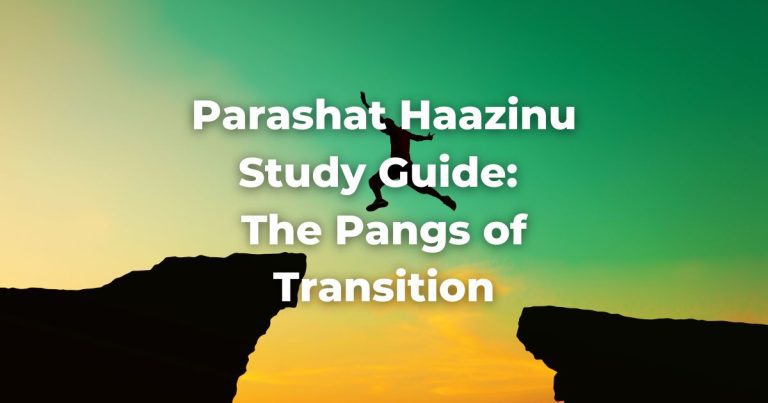Text: Devarim 26:1-10
1 And it shall be, when you come into the land which the LORD your God is giving you as an inheritance, and you possess it and dwell in it, 2 that you shall take some of the first of all the produce of the ground, which you shall bring from your land that the LORD your God is giving you, and put it in a basket and go to the place where the LORD your God chooses to make His name abide. 3 And you shall go to the one who is kohen in those days, and say to him, ‘I declare today to the LORD your God that I have come to the land which the LORD swore to our fathers to give us.’ 4 Then the kohen shall take the basket from your hand and set it down before the altar of the LORD your God. 5 And you shall answer and say before the LORD your God: ‘My father was an Aramian … and he went down to Egypt and dwelt there, few in number; and there he became a nation, great, mighty, and populous. 6 But the Egyptians mistreated us … 7 Then we cried out to the LORD God of our fathers, and the LORD heard our voice and looked on our affliction … 8 So the LORD brought us out of Egypt with a mighty hand and with an outstretched arm, with great terror and with signs and wonders. 9 He has brought us to this place and has given us this land, a land flowing with milk and honey; 10 and now, behold, I have brought the first-fruits of the land which you have given me, O LORD. …’
- Based on the declaration that a person declares when bringing the first fruits, what is our relationship to the land? Whose land is it? What purpose does bringing the first fruit serve?
- Is “I declare” in verse 3 referring to the moment that the person holds the basket of the fruit of his land? If so, how is this a declaration? Could it be referring to the lengthy spoken declaration in verses 5-10? When, in this ceremony, do you think that the history-ladened declaration in verses 5-10 was recited?
Commentary: Seforno on Devarim 26:3
I declare today—Through these actions I have let it be known to all …
- According to Seforno, how does one “declare” coming to the land in verse 3?
- Starting in verse 5 we encounter a spoken declaration. Which form of telling do you think is more effective, this or the verbal one? Why? For whom?
Commentary: Rashi on Devarim 26:5
Shall answer—is an expression for raising one’s voice.
- The root in Hebrew for “answer” can also be used for singing/declaring. What stage directions is Rashi giving for the ceremony? Why does he not understand it to mean “answering”?
See more: Parashat Ki Tavo
Originally posted as part of the Conservative Yeshiva at the Fuchsberg Jerusalem Center’s Torah Sparks. Support TorahRefers to the first five books of the Hebrew Bible, the Tanakh, also called the Five Books of Moses, Pentateuch or the Hebrew equivalent, Humash. This is also called the Written Torah. The term may also refer to teachings that expound on Jewish tradition. Read more learning from the Fuchsberg Jerusalem Center/Conservative Yeshiva for leaders and seekers around the world here.
Authors
-

Vered Hollander-Goldfarb teaches Tanach and Medieval Commentators at the Conservative Yeshiva and is a regular contributor to Torah Sparks, FJC’s weekly message on the weekly Torah portion. She received her M.A. in Judaic Studies and Tanach from the Bernard Revel Graduate School of Yeshiva University and studied at Bar-Ilan University and the Jewish Theological Seminary. Before making aliyah, Vered taught at Ramaz School and Stern College in New York.
View all posts -



The Fuchsberg Jerusalem Center (FJC) is a home in the heart of Jerusalem where leaders and seekers can find an authentic place in Jewish tradition to call their own. FJC offers opportunities to study, pray and explore within an egalitarian and inclusive setting, creating multiple pathways for finding personal and communal meaning.
View all posts






